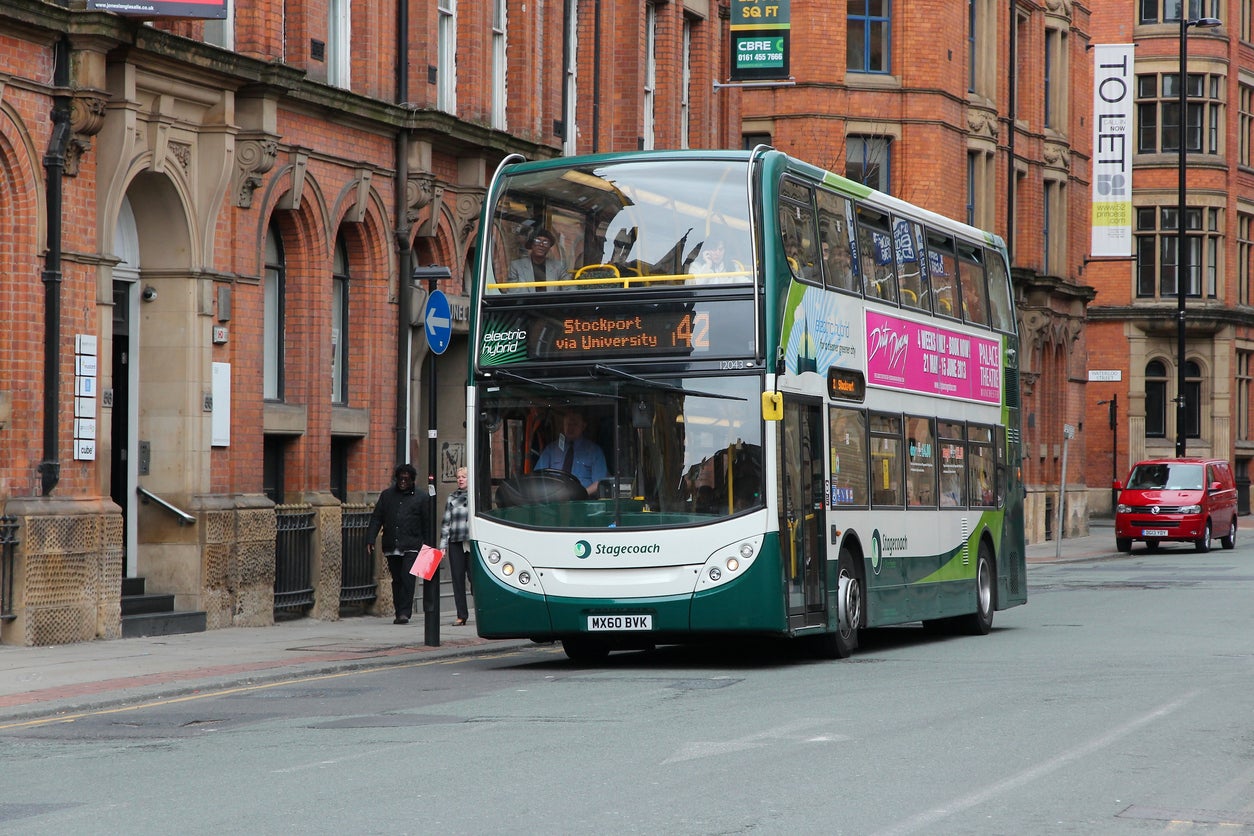Your support helps us to tell the story
From reproductive rights to climate change to Big Tech, The Independent is on the ground when the story is developing. Whether it's investigating the financials of Elon Musk's pro-Trump PAC or producing our latest documentary, 'The A Word', which shines a light on the American women fighting for reproductive rights, we know how important it is to parse out the facts from the messaging.
At such a critical moment in US history, we need reporters on the ground. Your donation allows us to keep sending journalists to speak to both sides of the story.
The Independent is trusted by Americans across the entire political spectrum. And unlike many other quality news outlets, we choose not to lock Americans out of our reporting and analysis with paywalls. We believe quality journalism should be available to everyone, paid for by those who can afford it.
Your support makes all the difference.The government has been urged to make its temporary £2 bus fare cap permanent to make travel more affordable, cut congestion, and reduce emissions.
Single bus tickets across England will be capped at £2 a journey from 1 January to 31 March this year – a significant reduction on some routes outside the capital.
The policy costs the government just £60 million in funding, the equivalent of £240 million a year were it to be extended.
Norman Baker from Campaign for Better Transport said the policy was "a welcome and much-needed move to make bus travel more affordable for millions of people".
He argued that it would "reduce traffic congestion and carbon emissions, and breathe new life into dwindling bus services".
"But in order to prevent the benefits of this initiative ending along with the scheme, we want to see it extended indefinitely, for the sake of our pockets, our economy and our environment," he said.
The fare cut affects 130 bus operators running 4,600 routes, reducing an average £2.80 bus fare by 80p a time.
The government estimates it will take two million cars off the road by encouraging people to switch to more sustainable journeys.
On some longer routes between towns and cities, the savings will be significant. The 22-mile journey from Lancaster to Kendall in the North West by bus currently costs £14.50, meaning the temporary saving from the policy will be £12.50.
In the South West, passengers making the journey from Plymouth to Exeter by bus will save £9.20, while those in the North East can travel from Newcastle to Middlesbrough for £6 less than normal.
Martin McTague, chair of the Federation of Small Businesses, welcomed the policy, and said it would "encourage shoppers to go to towns and cities – just the fuel we need for economic growth".
One reason the policy is so inexpensive is because large numbers of bus passengers already ride services for free due to measures such as freedom passes for pensioners. In the financial year 2020/21 there were 272 million concessionary bus journeys in England, according to government figures.
The government’s £2 cap affects fares outside London because in the capital they are already lower, at £1.65 per journey.
Transport Secretary Mark Harper said: "By helping passengers outside London save almost a third off the average single bus ticket and taking 2 million cars off the road, the £2 bus fare cap is a fantastic way to start the new year.
"Buses are a key part of our vision for a clean, efficient and modern transport network that is affordable for everyone. That’s why we’re investing £60 million to encourage everyone to hop on the bus and ‘Get Around for £2’."

Join our commenting forum
Join thought-provoking conversations, follow other Independent readers and see their replies
Comments